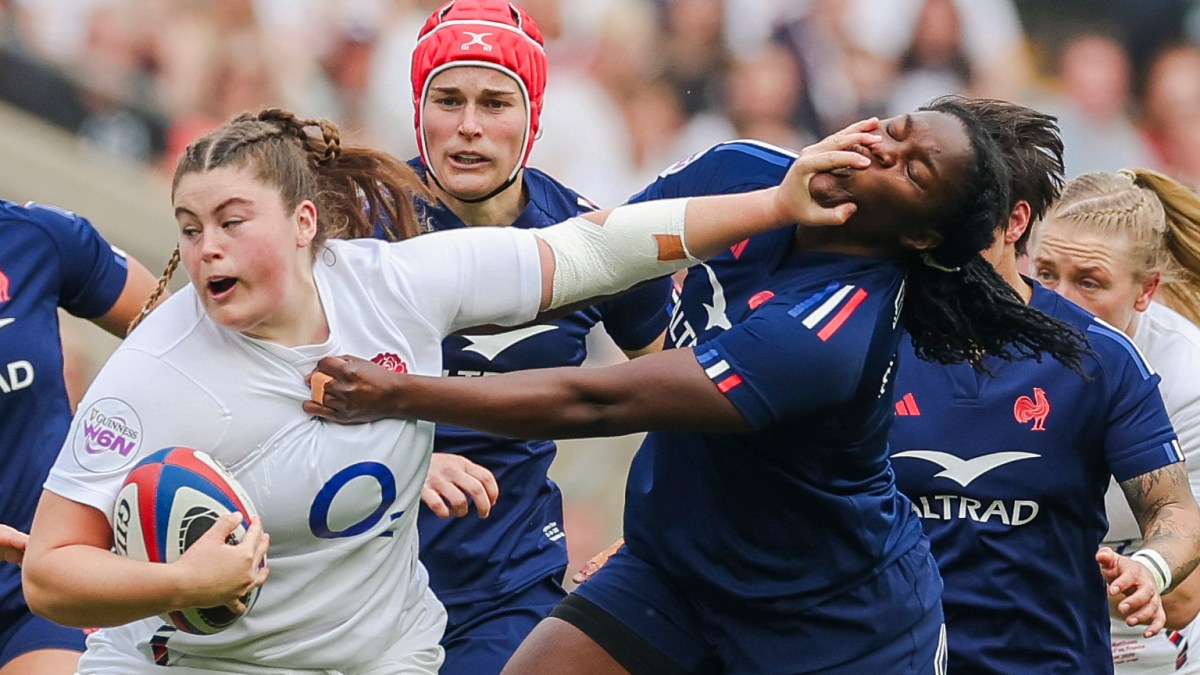Caroline Drouin struck the ball with 79min 37sec on the clock. Had it sailed between the uprights, France would have led New Zealand 27-25, with one passage to see out before celebrating their first accession to a Women’s World Cup final. Drouin pulled the kick left and short, the Black Ferns kept possession and Kendra Cocksedge booted the ball into touch.
How different the following week could have been. Had Drouin found a trajectory straight and true, there would have been no New Zealand at Eden Park for the 2021 World Cup final. No patriotic swell that shipped more than 8,000 tickets within minutes of the semi-finals’ conclusion. No Kiwi obstacle for England, whose unbeaten run ended at 30 games without a world title.
It was a classic World Cup heartbreak for the French. The men were gutted to crash out to South Africa in the quarter-finals at home two years ago, having lost the finals of the 1987, 1999 and 2011 tournaments. The women have never even made it to the end point, losing eight semi-finals: four to New Zealand, three to England and one to Canada.
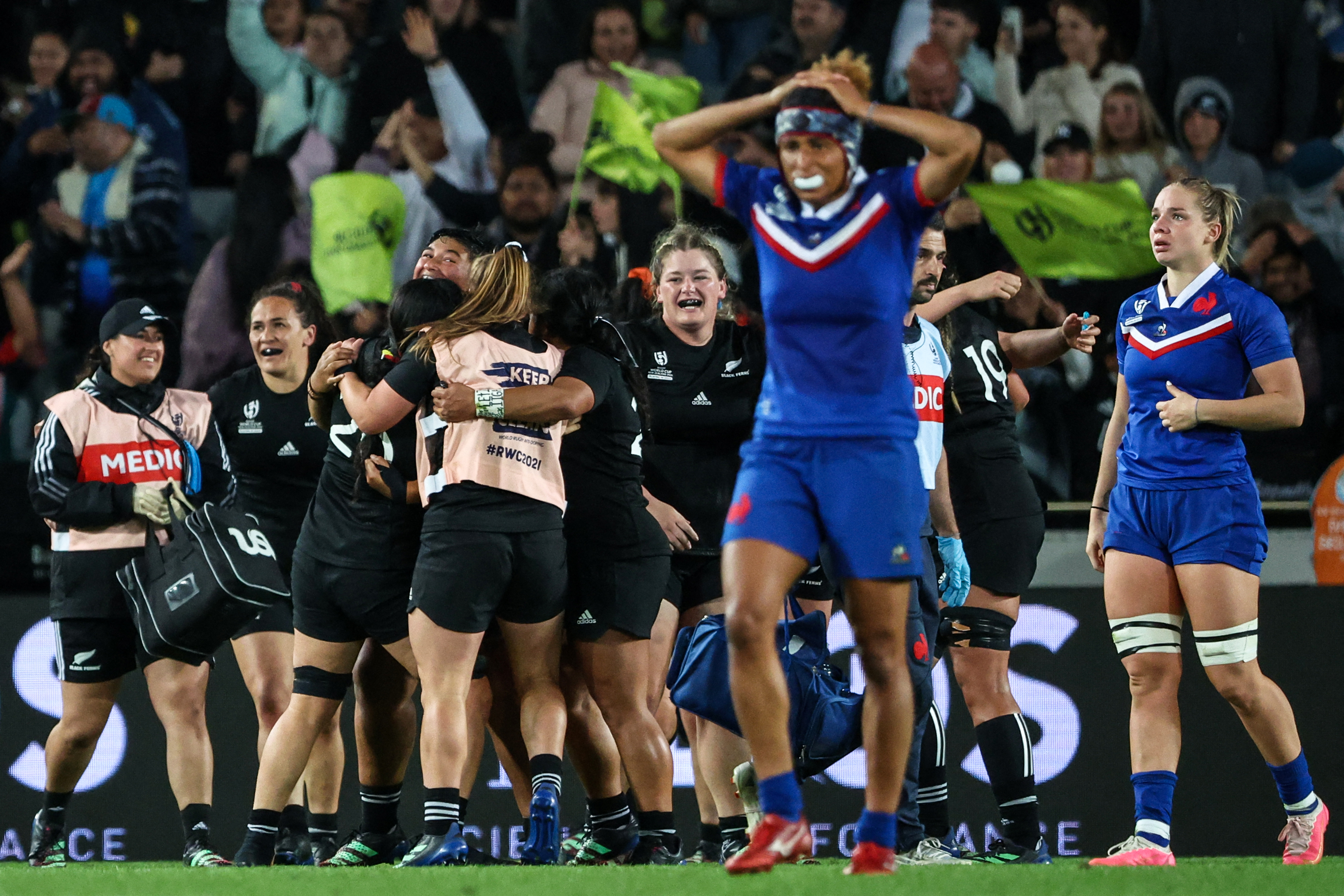
France players look devastated at losing their 2021 World Cup semi-final to hosts New Zealand after Caroline Drouin missed a late kick at goal that would have put them through
MARTY MELVILLE/AFP VIA GETTY
Even the most factional partisan carries slim hope for France in Bristol on Saturday. They are entrenched in the “big four”, but at No4. Le Crunch féminin is established as the Six Nations decider by rote, yet France have not beaten England since 2018, the year of their fifth grand slam. England went big on XVs professionalism in 2019 and pulled away from their continental foe. The tally stands at 16 successive defeats for France.
They have almost ended the run many times at Twickenham. In 2020, Emily Scarratt’s last-kick penalty made it 25-23, and a few months later it finished 10-6 at the Stoop. Then it was 38-33 in 2023 and 43-42 this year. Pauline Bourdon Sansus, the scrum half, saw more panic than usual in England’s eyes in that match in April, as France cut England apart after the break. “On home soil, it’s about that second half because we know that France are a team that will come out and throw the kitchen sink at you and will literally give you everything they’ve got,” Lou Meadows, the England attack coach, said.
The reason for expectation’s low-water mark comes not only from that sequence of defeats but last month’s scoreline: England’s 40-6 win in the heat of Mont-de-Marsan, in their final World Cup warm-up. It was a statement of relentlessness by the Red Roses, stung by allowing France back into the game four months earlier.
It was not always thus. France contested the first game of international women’s rugby union, against the Netherlands in Utrecht in 1982, and had the early wood over Great Britain before the unions separated into their constituent parts. In Anglo-French confrontations, France have won four times in England: at Franklin’s Gardens (1997), Imber Court (2005), and Twickenham (2013 and 2015). The latter two came during England’s XVs wobble, when Ireland were Six Nations champions and the Red Roses languished in third and fourth, prioritising sevens when the talent pool was not as deep as it is now.
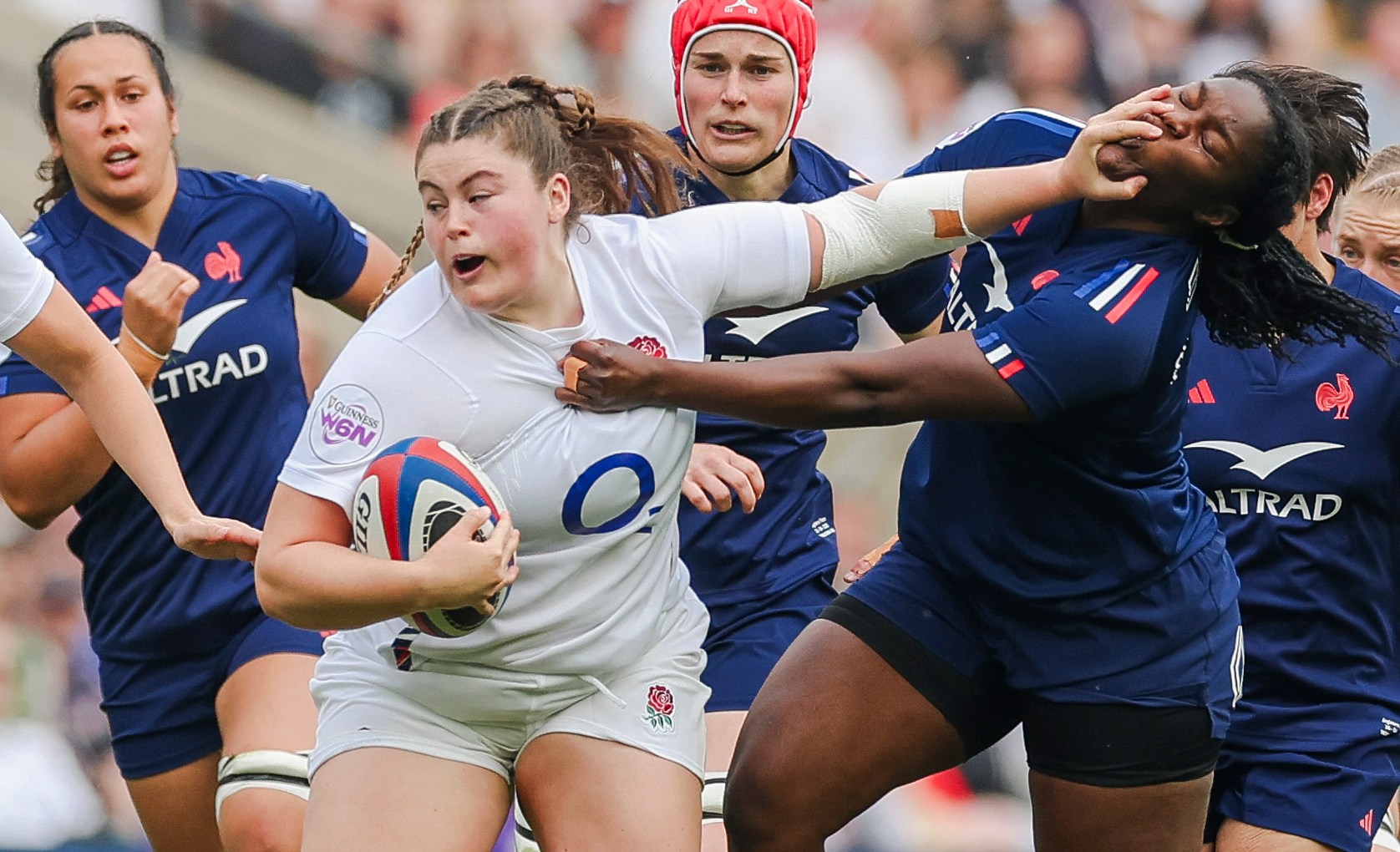
England’s thrilling 43-42 defeat of the French at Twickenham last April was one of many recent encounters where Les Bleues have fallen just short against the Red Roses
TIMES PHOTOGRAPHER MARC ASPLAND
England were world champions at the time, but France were also riding high from hosting the 2014 World Cup. Large crowds at Stade Jean-Bouin, the home of Stade Français, for the knockouts was a notable achievement, and France’s final pool game had almost two million viewers on TV. Les Bleues missed out 18-16 in the semi-finals to Canada, who proceeded to lose to England.
France have enjoyed similar benefits to the Red Roses in their burgeoning women’s rugby scene. They have successfully moved around some of the country’s premier rugby grounds, akin to the English touring policy: Bayonne, Bordeaux, Brive, Castres, Grenoble, La Rochelle, Le Mans, Paris, Pau, Toulouse and Vannes have hosted internationals in the past four years. They have not yet commanded a statement, standalone slot at Stade de France, though the Olympic sevens was held there last year to great fanfare.
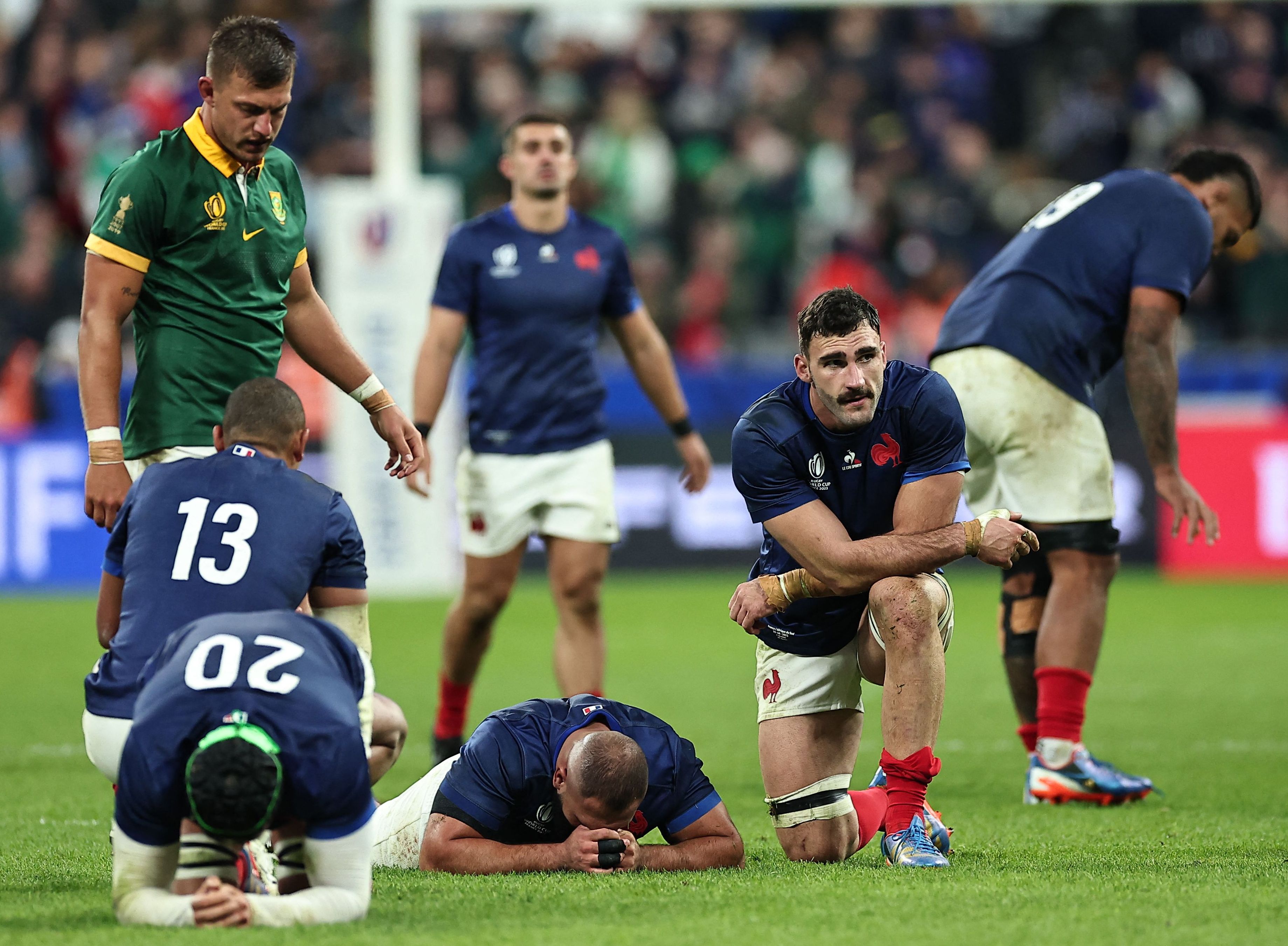
France’s men are down and out after losing 29-28 to eventual champions South Africa in their classic 2023 World Cup quarter-final
FRANCK FIFE/AFP VIA GETTY
There was a peak TV audience of 4.6 million on TF1 for France’s quarter-final win over Ireland — a women’s record in the country, and almost double the figure that watched England’s opening-night victory over USA on BBC1. Canal+ and Ligue Nationale de Rugby have agreed to delay the kick-offs of four men’s Top 14 matches on Saturday so as not to clash with the semi-final.
At domestic level, Axa was this week confirmed as sponsor of Élite 1, the nation’s top league, for the next three seasons. “To be viable in semi-professionalism, we must aim for a budget of €1.8-2million per club,” Jean-Marc Lhermet, vice-president of the French federation, has said. “Today, they are more similar to the budgets of Fédérale 3 or 2: between €400,000 and €500,000.”
Florian Grill, the president of the French union, cited an increase over the past two years from 40,000 to 53,000 registered players, with 100,000 the target. “There will be a ‘before’ and an ‘after’ World Cup, I keep repeating it,” he said. “We are convinced, in our desire to develop women’s rugby, that this World Cup will mark a turning point.”
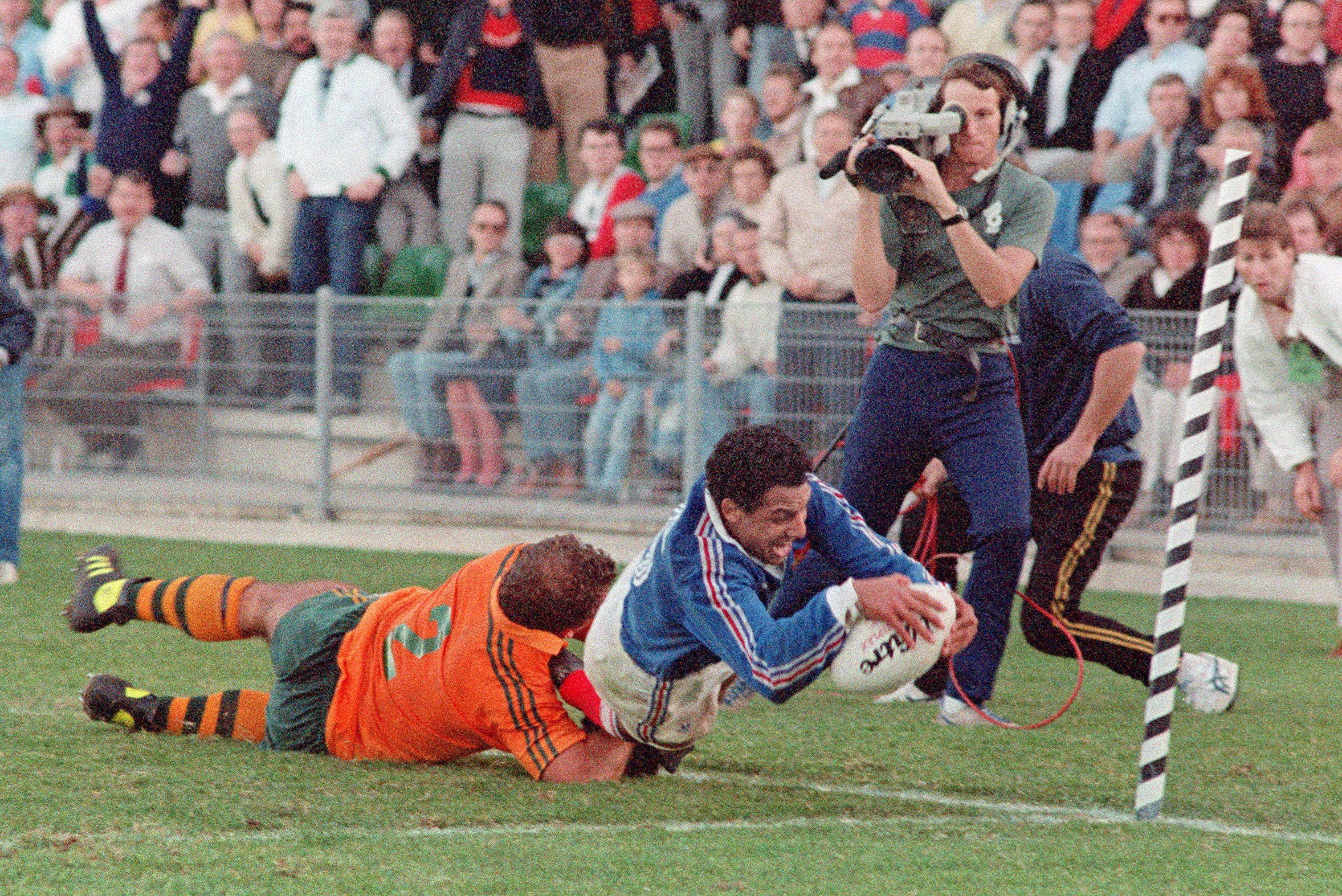
Serge Blanco dives in to score the dramatic, last-gasp winning try as France beat Australia 30-24 in the 1987 World Cup semi-final
GEORGES GOBET/AFP VIA GETTY
These are promising signs for French women’s rugby, but few expect the “after” to have them as the world champions. They will have to do it without Manaé Feleu, the co-captain, and Axelle Berthoumieu after their suspensions for a high tackle and a biting offence respectively in the quarter-final win over Ireland. Yet there is something about semi-finals and the prospect of majestic French absurdity, when all hope has been misplaced: Serge Blanco’s try against Australia in 1987, and the second-half destruction of the All Blacks at Twickenham in 1999.
Bourdon Sansus, Joanna Grisez, Madoussou Fall Raclot et al have it in them to cause the Red Roses trouble. They haven’t yet figured out how to cause defeat.
France v England
Women’s World Cup semi-final
Saturday, 3.30pm
TV BBC1
